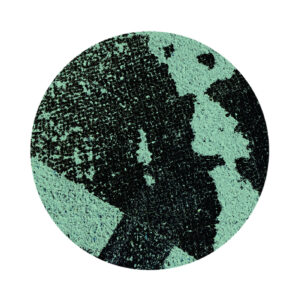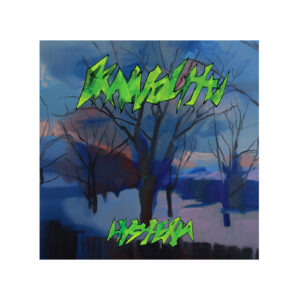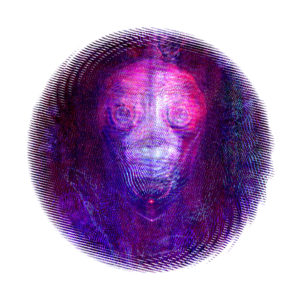Rachika Nayar Our Hands Against The Dusk [NNA136]
Cassette / DigitalRelease Date: March 5, 2021
Tracklist
01 The Trembling of Glass
02 Losing Too Is Still Ours
03 Marigolds & Tulsi
04 The Edges
05 New Strands
06 A Burning Plain
07 Aurobindo
08 No Future
The debut full-length from Brooklyn-based musician Rachika Nayar, Our Hands Against the Dusk, is animated by the experience of “touch”—not just caress, but encounters, collisions, and the point of contact between worlds. Nayar composed the album over four years by processing her textured guitar playing with digital means and combining the resulting sounds with shimmering synthesizer crescendos, lyrical piano, and orchestral strings. Via these methods, the album synthesizes a range of genres—ambient, deconstructed electronic, neoclassical, even Midwestern emo and beyond. It’s a shifting stylistic bent that reflects a queer life woven between ever-evolving identities, discourses, and spaces.
The diverse influences are visible on longer tracks such as “Losing Too Is Still Ours,” which extends from rippling guitar figures and keening vocals to methodic, marching strings. Such titles reference a range of personal and cultural images—a Rainer Maria Rilke poem of great personal importance, an Indian mystic at whose Pondicherry ashram a family member had a moment of Hindu “darshan,” and other vivid motifs.
For Nayar, the album’s fluid but always deeply felt form is thus a way of translating that which could never be summed up with static names, words, or feelings. To that end, Our Hands Against the Dusk mines the flux and discontinuity of experience as fertile ground. Nayar’s debut invites us to join alongside it in thinking beyond metanarratives, as musical and emotional histories touch in its twilight space and refract into a multifaceted whole. In that endeavor, Our Hands Against the Dusk is an embrace and a hope.
Press
“ …magnificent music full of abstract memories and synthesized, manipulated sounds that function as a two-way mirror—a place where both Nayar and her audience can explore themselves and their relationships with one another”
The Wire: Album Review
“…illuminates the forces that shape us and the forces that push us away from our centre. Listening is like remembering what we wanted to forget while driving down the highway into twilight.”
– The Wire, Vanessa Ague
Pitchfork: Track Review
“…a meditation on the potential of interpersonal touch”
The Quietus: Album Review
“…a guitar-led album that manages to do something new with the instrument … through all the wonderful textures, there’s an essence that doesn’t need to be explained, it can just be felt.”
SLUG Magazine: Interview
“…limitlessness is strewn across Nayar’s astounding debut album”
Magnetic Magazine: Interview
“…a textured and detailed examination of the edges of what ambient music can and should be”
Everything is Noise: Album Review
“…an album that stands alone with its inventive grace”
















